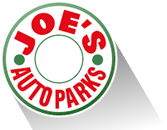
By offering adaptable options such as daily or part-time passes, businesses can better accommodate the unique needs of hybrid workforces, improving both employee satisfaction and operational efficiency.
The workplace has undergone a profound transformation, with hybrid work models becoming the standard for many organizations. Employees now split their time between working remotely and being in the office, creating new logistical challenges for both businesses and their teams. One such challenge is parking. Traditional parking models are often ill-suited to the dynamic schedules of hybrid workers, leading to inefficiencies and unnecessary costs. Flexible parking solutions are emerging as a critical component in addressing these challenges.
Understanding Hybrid Work Models
The rise of hybrid work has transformed the way organizations operate. It has introduced a level of flexibility that benefits both employees and employers. However, it also requires businesses to rethink their logistical strategies, including parking.
Defining Hybrid Work
Hybrid work allows employees to divide their time between remote and in-office work. This model provides the flexibility to collaborate in person when necessary while maintaining the autonomy of remote work. For many organizations, hybrid schedules vary widely—some employees come in on specific days, while others have less predictable routines.
The Growing Popularity of Hybrid Work
Recent studies show that over 60% of organizations have adopted hybrid work models, with many citing increased productivity and improved work-life balance as key benefits. The pandemic accelerated this shift, and now it has become a permanent fixture for many businesses.
Benefits and Challenges
While hybrid work offers significant advantages, it also presents logistical challenges. Managing resources such as office space, meeting rooms, and parking requires new strategies to align with fluctuating attendance patterns.
The Need for Flexible Parking Solutions
Hybrid workforces bring new complexities to parking management. As employees no longer adhere to a fixed schedule, businesses must adapt their parking strategies to meet fluctuating demands.
Limitations of Traditional Parking
Conventional parking arrangements, such as fixed monthly permits, often result in underutilized spaces on remote workdays and overcrowding during peak office days. These inefficiencies can frustrate employees and drive up costs for businesses.
Employee-Centric Solutions
Flexible parking plans address these shortcomings by aligning with the schedules of hybrid workers. They offer tailored options that help employees avoid paying for unused parking while ensuring availability on in-office days.
Work-Life Balance and Parking
Providing adaptable parking solutions is more than just a logistical improvement; it’s a way to enhance employee well-being. By reducing stress around commuting and parking, businesses can foster a more supportive work environment.
Types of Flexible Parking Options
To meet the demands of hybrid workforces, businesses are exploring a range of flexible parking options. Each solution is designed to address specific needs, providing employees with convenience and organizations with efficiency.
- Daily Parking Passes: Daily passes allow employees to pay for parking only on the days they are in the office. This is particularly useful for those with infrequent or irregular office attendance.
- Part-Time Parking Passes: For employees with set office days, part-time passes provide a predictable and cost-effective solution. These passes ensure that parking is reserved for specific days each week.
- Pay-as-You-Go Parking: This option offers maximum flexibility for employees with unpredictable schedules. They can park as needed without committing to a fixed plan, giving them freedom to adapt to changing circumstances.
- Shared Parking Spaces: Shared parking spaces optimize usage by allowing multiple employees to share a single spot. This is ideal for organizations with part-time or alternating schedules.
- Subscription-Based Models: Tailored subscription packages can accommodate hybrid schedules, offering a consistent yet flexible parking solution. Businesses can design plans based on workforce attendance patterns, reducing waste and improving efficiency.
Benefits of Implementing Flexible Parking Plans
Flexible parking plans bring tangible advantages to businesses and employees alike. They address logistical challenges while fostering a more efficient and satisfying workplace experience.
Savings for All
Flexible parking options help businesses reduce costs associated with underutilized spaces. By optimizing parking facilities to align with hybrid schedules, employers avoid unnecessary expenses for vacant spots. Employees benefit as well, paying only for the days they park, eliminating the burden of costly, unused monthly permits.
Boosted Morale and Retention
When businesses offer flexible parking, they send a clear message: employee needs matter. Such consideration enhances workplace satisfaction and fosters loyalty. Employees who feel supported are more likely to stay long-term, reducing turnover and strengthening the organization’s culture.
Eco-Friendly Choices
Encouraging fewer commutes through adaptable parking solutions aligns with sustainability goals. By discouraging unnecessary trips on remote workdays, businesses contribute to reducing emissions and supporting greener practices. This not only benefits the environment but also resonates with eco-conscious employees.
Adaptable and Future-Proof
The hybrid work landscape continues to evolve, and flexible parking solutions are designed to evolve with it. Businesses that implement adaptable plans today position themselves to respond swiftly to changes, ensuring relevance and resilience in an unpredictable future.
Considerations for Businesses
Implementing flexible parking solutions requires thoughtful planning. Businesses must evaluate their current needs and resources to create effective strategies.
Assess Workforce Needs
Understanding employee schedules and preferences is the first step in designing effective parking solutions. Surveys and attendance data can provide valuable insights. Knowing how frequently employees come to the office and their preferred commuting patterns allows businesses to design tailored plans that truly meet their needs. Such insights ensure no resources are wasted and employee satisfaction is maximized.
Evaluate Current Infrastructure
A thorough audit of existing parking facilities will help identify areas for improvement and opportunities for optimization. This process includes assessing the capacity of current lots, identifying underutilized spaces, and determining whether upgrades—such as improved signage or new access systems—are necessary to support flexible parking options.
Leverage Technology
Modern parking systems, such as mobile apps and automated access controls, simplify the management of flexible parking options. These tools also enhance the user experience by providing real-time availability updates, digital payments, and seamless booking systems. Technology integration can reduce administrative burdens while ensuring employees enjoy hassle-free parking.
Partner with Experts
Working with a parking management company like Joe’s Auto Parks ensures access to tailored solutions and industry expertise. Professional guidance can streamline implementation and maximize results. Experts can also assist in adapting plans over time, ensuring long-term success as workforce needs evolve.
Monitor and Adapt
Flexible parking plans require ongoing evaluation. Regularly reviewing usage patterns and employee feedback allows businesses to refine their approach over time. By remaining responsive to changes in attendance trends or employee preferences, companies can continuously optimize their parking strategies to ensure they remain effective and cost-efficient.
Joe’s Auto Parks: Your Flexible Parking Partner
Joe’s Auto Parks understands the challenges hybrid workforces face. That’s why we offer customizable parking solutions tailored to your needs. From daily passes to subscription-based plans, our services are designed to make parking stress-free.
With our advanced technology, employees can reserve spots with a tap, and businesses gain access to insights that optimize space usage. At Joe’s Auto Parks, flexibility isn’t just a buzzword—it’s a commitment.
The Road Ahead
Hybrid work is here to stay, and businesses must adapt. Flexible parking plans are a simple yet impactful way to support employees while managing costs. Don’t let outdated parking models hold your workforce back.
Contact Joe’s Auto Parks today to explore tailored solutions that make sense for your hybrid workplace. Let’s create a smarter, more adaptable future—together.

Comments are closed.